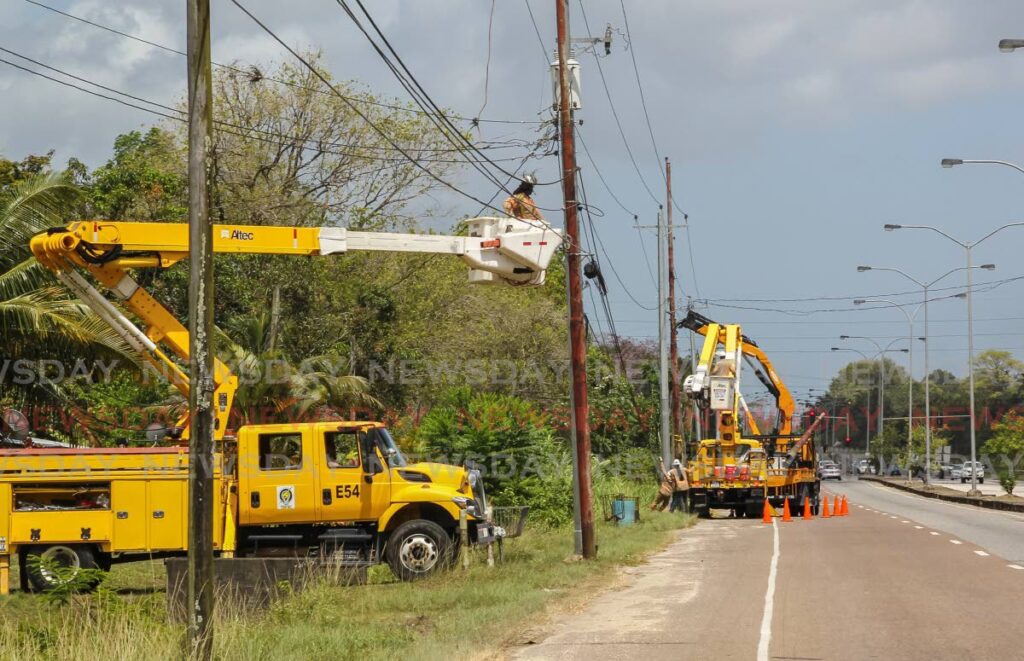RIC: TTEC should cut costs by $2.2b

Regulated Industries Commission chairman Dawn Callendar said the commission has asked TTEC to slash its cost profile by $2.2 billion. She said the reduction of the cost profile from $29 billion to $27 billion would be cause for unhappiness for TTEC.
“Now that they are hearing this information, they can sharpen their pencils, they can look at areas within the business where they want to introduce different methods of doing work, whether it is new technology and the like, but reduce the overall costs by $2.2 billion.”
She made the statement during the first of the commission’s public consultations, a live media interview on Tuesday at 10.15 am on i95.5FM.
Asked how the RIC will hold TTEC accountable and how non-performance would be penalised, executive director Glenn Khan said there were guaranteed and overall quality-of-service standards.
“For guaranteed standards, if TTEC is supposed to provide you with a level of service and that is not met, there is an automatic process where you can get compensated in terms of a rebate on your bill. So that is one way.
“We have determined in some parts of the country, people have been experiencing between three and 29 outages per year. We have decided that no one should get more than three outages per year. If TTEC is able to achieve that, they will benefit by an increase in their ability to collect revenues by $7.5 million dollars. If they don’t achieve that, they will lose $10 million in their revenue. So we have put in a number of conditions in the rate review that TTEC must meet if they are to give you efficient service.”
Callendar said the rate review would not put unnecessary pressure on TTEC.
“Anyone involved in business or making business decisions, we’re always trying to look for continuous improvement, we’re always trying to do more with less, and we’ve left the operational decisions to TTEC. So they have complete flexibility about where they want to make changes, we have given them the targets within the quality-of-service standards, and once they achieve those, they can determine how they go about achieving them.”
Callendar addressed concerns about the legality of the review which had been expressed by members of the public. She explained that there are two sections of the Regulated Industries Commission Act which could govern the review process, sections 48 and 49. She said the section being used is Section 48, which allows the RIC to initiate a rate review, while Section 49 allows the service provider to come to the RIC and ask for a rate review.
Section 48 says: “The commission shall review the principles for determining rates and charges for services every five years or, where the licence issued to the service provider prescribes otherwise, at such shorter interval as it may determine.
Section 49 (1) says: “Notwithstanding section 48, where it is the opinion of a service provider that there has been such a fundamental change in circumstances as to warrant a review of the principle for determining rates for the service which it provides, it may give written notice to the commission requesting a review of the principle except that it may not request a review more than once in any year.”
She said the commission felt it had a responsibility to share with people how the new rates were arrived at, which is why it was having consultations across the length and breadth of TT.
She encouraged the public to come out to the consultations with their bills and data about their usage. She said people would be provided with information on what their bills would be with the new rates. She said they would also be introduced to devices which can notify people of their consumption before they got their bills, as well as techniques for reducing consumption.
Khan said the proposed new rates could be found on the RIC’s website, www.ric.org.tt, and people could peruse the report thoroughly and send in comments and questions.
Newsday contacted Public Utilities Minister Marvin Gonzales and asked him if he believed TTEC was in a position to reduce its cost profile as recommended by the RIC and how that might be achieved. He was also asked if the electric company would be able to reduce outages to three times per year for customers.
In response, Gonzales said he did not think it would be prudent to comment at this time as the review process was currently being carried out independently by the RIC.
“I haven’t heard the comments but I intend to follow closely what they will be saying to the stakeholders and the country, and I would prefer to await the final outcome and their recommendations to the government through the Ministry of Public Utilities and then government will be able to give its take on the recommendations of the RIC.
“We are still in the draft determination stage, and some of those things are not final, they are to be considered preliminary until the final recommendations are made and it wouldn’t be prudent of me to comment in the midst of that rate review process on comments that they would have made during the consultations and their observations and recommendations to TTEC.”
In response to the same questions, TTEC corporate communications manager Annabelle Brasnell expressed similar sentiments.
She said, “Given that the consultation process has just started, and the determination is still a draft document, I would reserve commenting at this time.”
OWTU president general Ancel Roget could not be reached for comment up to press time.


Comments
"RIC: TTEC should cut costs by $2.2b"